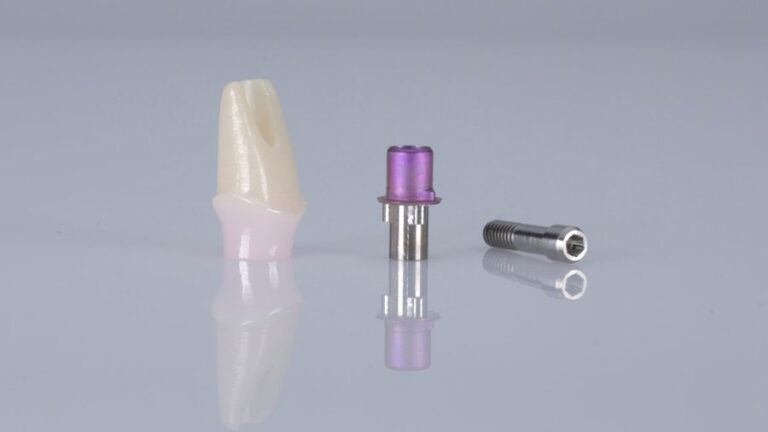Dental abutments play a crucial role in the world of restorative dentistry, serving as the vital link between dental implants and the artificial teeth that replace missing ones. If you’re considering dental implants or simply want to learn more about this key component, you’ve come to the right place. In this article, we will explore what dental abutments are, their functions, types, materials, and much more.
What Is a Dental Abutment?
A dental abutment is a connector piece that attaches to the top of a dental implant. It serves as the foundation for securing artificial teeth—such as crowns, bridges, or dentures—ensuring they remain stable and functional.
The Role of Abutments
Dental abutments serve several essential functions:
- Retention: They securely hold the prosthetic tooth in place.
- Support: Abutments bear the forces exerted during biting and chewing, preventing undue stress on the implant.
- Alignment: They allow dentists to adjust angles for optimal bite alignment.
- Height Extension: Abutments provide necessary height for proper crown positioning.
- Cement Retention: They create space for cement between the implant and prosthetic tooth.
These functions make abutments indispensable for the success of dental implants, ensuring that artificial teeth are not only functional but also aesthetically pleasing.
How Do Dental Implants Work?
To fully understand the importance of abutments, it’s essential to grasp how dental implants operate.
- Dental Implants: These are titanium posts surgically inserted into the jawbone, acting as artificial tooth roots.
- Osseointegration: Over several months, the jawbone fuses with the implant through a process called osseointegration, providing a strong base for the replacement teeth.
- Abutment Attachment: Once healing is complete, an abutment is attached to the implant, extending above the gums and allowing for secure placement of the visible prosthetic tooth.
Types of Dental Abutments
There are various types of dental abutments designed to meet specific patient needs:
- Healing Abutments: Temporary pieces that protect implants during initial healing.
- Stock Abutments: Prefabricated options available in standard sizes; suitable for routine cases but lack customization.
- Custom Abutments: Tailored to fit individual implants perfectly, providing optimal support and aesthetics.
- Angled Abutments: Allow for adjustments up to 45 degrees, facilitating ideal placement even with tilted implants.
- Esthetic Abutments: Made from materials like zirconia or ceramic for a natural appearance.
- CAD/CAM Abutments: Digitally designed for precision fitting and durability.
Material Choices for Abutments
Abutments can be made from various materials, each with unique properties:
- Titanium: Strong and biocompatible but less aesthetic.
- Gold Alloy: Durable with excellent aesthetics but more expensive.
- Zirconia: Offers good aesthetics but can be brittle.
- Polyether Ether Ketone (PEEK): Lightweight and strong with some flexibility.
The choice of material depends on factors like strength requirements, aesthetic considerations, and cost-effectiveness.
How Are Abutments Attached?
The process of attaching an abutment is relatively straightforward:
- Incision: A small cut is made in the gum tissue to reveal the implant.
- Positioning: The abutment is carefully placed into the implant socket.
- Screw Fastening: A screw is inserted to secure the abutment firmly in place.
- Suturing: The gum tissue is repositioned and stitched around the abutment to promote healing.
After about two weeks, your dentist will check on your healing progress before proceeding with impressions for your custom prosthetic.
Cost Considerations
The cost of dental abutments varies based on type and complexity:
- Stock Abutment: Approximately $500 – $1,500
- Custom Abutment: Ranges from $800 – $3,000
Prices can fluctuate based on materials used and insurance coverage, so it’s advisable to discuss costs with your dentist beforehand.
Potential Risks Associated with Dental Abutments
While generally safe, there are some risks associated with dental abutments:
- Abutment Fracture: Cracks may occur due to excessive biting forces.
- Screw Loosening: Over time, screws may loosen, leading to instability.
- Peri-implantitis: Inflammation around an implant can result in bone loss if not managed properly.
To mitigate these risks, maintaining good oral hygiene and regular dental check-ups are essential.
Caring for Your Abutment and Implant
To ensure longevity and health of your dental abutment and implant:
- Brush twice daily using gentle motions.
- Floss around the abutment carefully to avoid dislodging screws.
- Use antiseptic mouthwash to reduce bacteria around the implant site.
- Schedule professional cleanings every six months to prevent plaque buildup.
Avoid hard foods that could damage your implant or abutment. If you experience pain or swelling, contact your dentist promptly.
Conclusion
In summary, dental abutments are vital components that connect implants securely to artificial teeth. They provide structural support and retention necessary for optimal functionality and aesthetics in restorative dentistry. Understanding their role helps patients appreciate their importance in achieving a healthy smile. With proper care and maintenance, dental implants supported by well-chosen abutments can last many years, enhancing quality of life through improved chewing ability and confidence in one’s appearance.
If you have questions about dental abutments or are considering an implant procedure, consult your dentist for personalized advice tailored to your needs.








